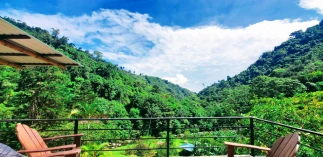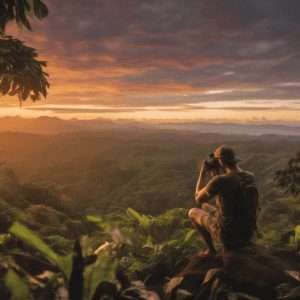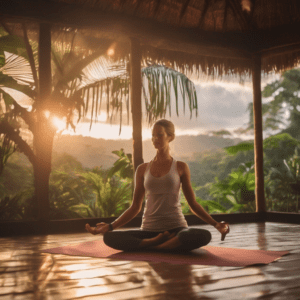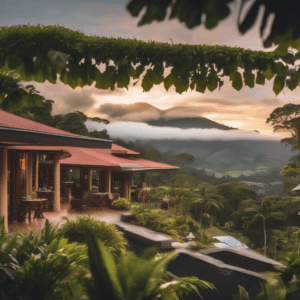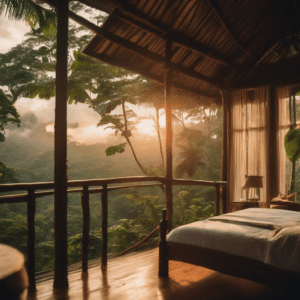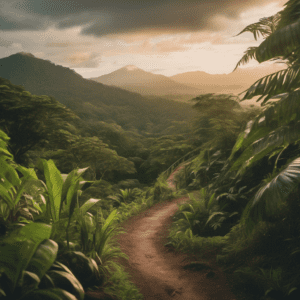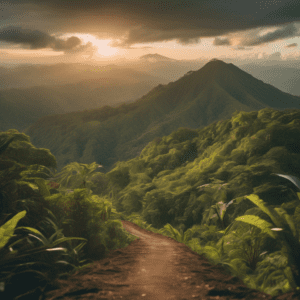Costa Rica offers a unique mix of natural beauty, thrilling terrain, and vibrant culture, making it a prime destination for mountain biking enthusiasts. Mountain biking Costa Rica trails is not just paths through the jungle or along rugged volcano slopes—they are about gateways to local villages, traditional cuisine, and cultural experiences that add depth to every ride. From the lush cloud forests to the Pacific coastline, the country’s trails offer riders the chance to combine adrenaline with authentic cultural encounters.
Embracing the Local Culture Along the Trails
Mountain biking Costa Rica trails is often intertwined with communities where riders can interact with residents and observe traditional lifestyles. Many small towns along the trails retain customs and celebrations that have been preserved for generations. Some of the cultural highlights include:
- Traditional Music and Dance: Riders passing through villages may witness performances of cumbia, salsa, or folk dances, offering a glimpse of Costa Rica’s rich musical heritage.
- Local Markets: Small farmers’ markets provide opportunities to sample fresh fruits, handmade crafts, and locally grown coffee beans. These markets often showcase vibrant colors, smells, and flavors that are unique to the region.
- Artisan Workshops: Some trails pass workshops where locals create pottery, wood carvings, or textiles. Visitors can watch the craft process and sometimes purchase pieces directly from the makers.
Immersing in the local culture adds an enriching layer to every ride, allowing bikers to pause, connect, and recharge while supporting small communities.
Essential Food Stops for Mountain Bikers
Mountain biking is demanding, and riders need nutritious and energy-boosting meals to maintain stamina. Costa Rica’s local cuisine is fresh, flavorful, and perfect for refueling between trails. Key stops along popular routes often include:
- Sodas (Local Eateries): Sodas are small family-owned restaurants offering traditional dishes such as gallo pinto, casado, or plantains. These meals provide balanced nutrition and a hearty dose of local flavor.
- Fresh Fruit Stalls: Along many trails, fresh fruit vendors sell pineapple, papaya, mango, and bananas, offering natural sugar and hydration for bikers.
- Coffee Stops: Costa Rica is famous for its high-quality coffee. Some trails pass through plantations where riders can taste locally roasted coffee and learn about its cultivation.
- Street Food Vendors: In towns or near trailheads, street vendors serve quick snacks like empanadas, tamales, or chifrijo, perfect for a fast energy boost.
In addition to replenishing energy, these stops provide a chance to connect with locals and hear stories about the surrounding environment.
Popular Mountain Biking Routes with Cultural Highlights
Several mountain biking Costa Rica trails stand out for combining thrilling rides with access to cultural experiences and food stops:
- Arenal Volcano Trails: Riders encounter lava fields, dense forests, and natural hot springs. Villages along the way offer local dining and artisan crafts.
- Monteverde Cloud Forest Paths: Trails wind through misty cloud forests with breathtaking views. Nearby towns feature coffee tours and traditional Costa Rican meals.
- Nicoya Peninsula Routes: Coastal trails offer ocean views, beachside villages, and fresh seafood at local eateries.
- Central Valley Loops: These trails traverse small towns and agricultural regions, providing opportunities to sample local fruits, cheeses, and freshly baked goods.
Each route provides an adventure that goes beyond physical challenge, emphasizing interaction with the people, flavors, and traditions of Costa Rica.
Tips for Combining Biking with Culture and Cuisine
To make the most of your journey along mountain biking Costa Rica trails, consider these practical suggestions:
- Plan Rest Stops: Allocate time for food and cultural stops along the route.
- Pack Light Snacks: While local food is accessible, carrying energy bars or dried fruits can prevent fatigue.
- Interact Respectfully: Engage with locals politely and show interest in their crafts and traditions.
- Bring Reusable Items: Support eco-friendly practices by carrying reusable water bottles and utensils.
- Check Trail Accessibility: Some trails pass private lands or farms; always seek permission if unsure.
These steps help ensure a seamless experience that combines biking, culture, and cuisine without disruption.
Seasonal Insights and Trail Conditions
Mountain biking in Costa Rica trails vary in difficulty and conditions depending on the season:
- Dry Season (December–April): Trails are more accessible, with less mud and clearer paths. Cultural events and markets are in full swing during this time.
- Rainy Season (May–November): Trails may become slippery, and rivers can swell, adding a challenging element to rides. Local fruit harvests peak during this period, providing seasonal flavors along the routes.
Adapting to seasonal conditions allows riders to enjoy the trails safely while maximizing cultural and culinary experiences.
Supporting Local Communities
Riding mountain bikes in Costa Rica trails can directly benefit local communities. By stopping at family-run sodas, markets, and workshops, bikers contribute to the livelihoods of artisans, farmers, and small business owners. Simple actions such as purchasing handmade goods or dining locally ensure the communities thrive alongside tourism.
Health Benefits of Combining Riding with Cultural Engagement
Mountain biking offers cardiovascular, strength, and endurance benefits, while integrating culture and food enhances mental and emotional well-being. Pausing at scenic or cultural spots:
- Reduces stress and enhances mood
- Encourages mindful eating with fresh, natural ingredients
- Fosters social connections with locals
- Provides mental stimulation through new experiences and learning opportunities
The combination of physical exertion and cultural engagement creates a holistic approach to adventure and wellness.
Local Events and Festivals
Many mountain biking trails intersect with towns that celebrate traditional festivals:
- Fiestas Patronales: Local religious festivals feature parades, music, and dancing.
- Harvest Celebrations: Towns celebrate coffee, pineapple, or other harvests with food stalls, music, and traditional crafts.
- Cultural Exhibitions: Museums or local centers may showcase historical exhibits, offering bikers insight into Costa Rica’s past.
Timing rides to coincide with these events allows riders to enjoy a deeper connection to the communities they pass through.
Accommodations for Mountain Bikers
Choosing a base near popular trails makes the biking experience smoother. Accommodations that cater to bikers often provide:
- Secure bike storage
- Repair stations and tools
- Nutritional meals suited for active travelers
- Easy access to nearby trails
A convenient and comfortable stay allows riders to focus on their trail experience without logistical stress.
Packing Essentials for Trails and Stops
When biking through Costa Rica’s diverse landscapes and cultural spots, it’s important to pack thoughtfully:
- Lightweight hydration packs and water bottles
- Energy bars and snacks
- Rain jackets for sudden weather changes
- Portable bike repair kits
- Comfortable clothing suitable for riding and visiting towns
Being prepared ensures that riders can fully enjoy both the physical challenge and cultural experiences along the trails.
Why Choose Hotel Rivel?
Hotel Rivel offers a perfect base for riders seeking access to top mountain biking Costa Rica trails while enjoying comfort, local cuisine, and guidance on cultural hotspots. With secure bike storage, nutritious meals, and personalized recommendations for nearby trails and food stops, every journey becomes unforgettable. Choosing Hotel Rivel ensures a seamless balance of adventure, culture, and relaxation.

